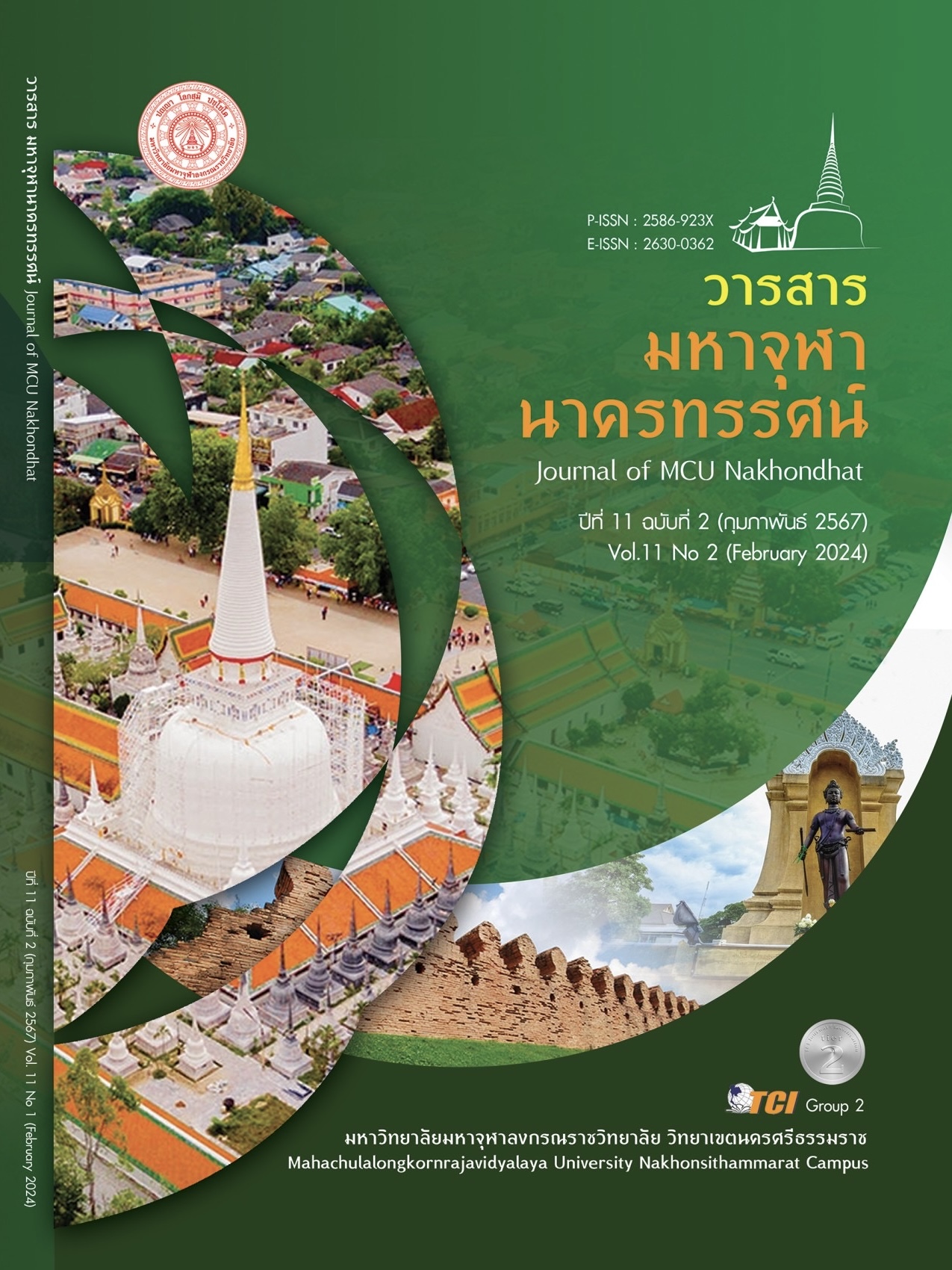THAI TOURISM STRATEGY 2023 - 2027 AND ECOTOURISM
Main Article Content
Abstract
Tourism is recognized as a vital sector, generating significant income for nations. Thailand relies on tourism revenues, stemming from the diversity of its natural resources. As the nation has historically attracted a large influx of tourists, this mass tourism has unfortunately led to the degradation of natural sites. With the emergence of the COVID - 19 pandemic and the consequent plummet in the number of international tourists, several natural tourist destinations had the opportunity to recover. Drawing from this lesson, the next phase of tourism development should emphasize responsible and sustainable practices among stakeholders in the tourism industry. These practices are essential for maintaining the competitiveness and longevity of environmental and natural resources. To facilitate tourism promotion, the Ministry of Tourism and Sports has formulated the Third National Tourism Development Plan (2023-2027), guided by the vision of "Thai tourism as a value-driven industry, adaptable and committed to sustainable and inclusive growth." Among the four strategies of the plan, Strategy 4 emphasizes sustainable tourism, which is closely intertwined with ecotourism. This approach suggests that the nation's long - term sustainable tourism expansion is dependent on development that integrates economic, social, and environmental sustainability. Therefore, in developing tourist destinations and communities, it is imperative to actively minimize the negative impacts of tourism, such as pollution, waste generation, and climate change. This action is crucial to ensure that Thai tourism can sustainably capture and enhance the value derived from its natural resources, cultural heritage, unique Thai identities, and existing tourist destinations.
Article Details

This work is licensed under a Creative Commons Attribution-NonCommercial-NoDerivatives 4.0 International License.
References
กรมการท่องเที่ยว. (2566). วิสัยทัศน์พันธกิจ. เรียกใช้เมื่อ 10 ธันวาคม 2566 จาก https://www.dot.go. th/pages/18
กระทรวงการท่องเที่ยวและกีฬา. (2565). กระทรวงการท่องเที่ยวและกีฬาแผนปฏิบัติราชการรายปี 2565. กรุงเทพมหานคร: กองยุทธศาสตร์และแผนงานสำนักงานปลัดกระทรวงการท่องเที่ยวและกีฬา.
ประกาศคณะกรรมการนโยบายการท่องเที่ยวแห่งชาติ. (2566). เรื่อง แผนยุทธศาสตร์พัฒนาการท่องเที่ยวฉบับที่ 3 พ.ศ. 2566 - 2570. ราชกิจจานุเบกษา เล่ม 140 ตอนพิเศษ 70 ง หน้า 1 (24 มีนาคม 2566).
ภิษฐ์วลัญต์ กรพิพัฒน์. (2562). กรอบวิเคราะห์ความยั่งยืนการท่องเที่ยวเชิงนิเวศ. วารสารสิ่งแวดล้อม, 23(1), 1-12.
สุนทร วัฒนาพร. (2555). การบริหารจัดการยุทธศาสตร์การท่องเที่ยวแบบบูรณาการในจังหวัดสมุทรสาคร. สมุทรสาคร: มหาวิทยาลัยศรีปทุม.
สุรีย์ เข็มทอง. (2556). แนวปฏิบัติที่ดีของการจัดการท่องเที่ยวเชิงอนุรักษ์. วารสารการจัดการสมัยใหม่, 11(2), 1-10.
Jaini, N. et al. (2012). The Practice of Sustainable Tourism in Ecotourism Sites among Ecotourism Providers. Asian Social Science, 8(4), 175-179.
Khan, M. (2003). ECOSERV : Ecotourists’ Quality Expectations. Annals of Tourism Research, 30(1), 109-124.
Liu, C-H. et al. (2013). The Determinants of Ecotourism Behavioral Intentions. Global Journal of Business Research, 7(4), 71-83.
UNTWO. (2020). UNWTO International Tourism Highlights , 2020 Edition. Retrieved January 10, 2023, from https://www.e-unwto.org/doi/book/10.18111/9789284422456
UNTWO. (2021). UNWTO World Tourism Barometer and Statistical Annex. Retrieved January 10, 2021, from https://www.e-unwto.org/doi/abs/10.18111/wtobarometereng.2021.19.1.1


